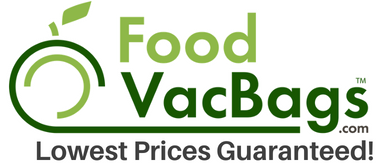Posted on March 17 2022

When you think of the term 'homesteading', what do you envision? You may remember learning about the various homestead acts of the 19th and 20th centuries, where governments allowed people to obtain land simply by filing a claim.
Typically, a claim could only apply to so many acres, and certain conditions had to be met. For example, a person or family had to actually live on the property and make improvements within a specified period of time. The Homestead Act of 1862 made 160 acres available for free to anyone over the age of 21 who would agree to settle on the property, build a home, and farm the land for a period of five years. The land was theirs to keep forever, for free, as long as the conditions were met.
Today, many states offer homestead credits or exemptions on property taxes, where a certain percentage of their taxes may not be owed if they declare their property as a homestead. Today, however, you do not have to farm the land for any given period of time. Instead, in most cases, you simply have to live on the property in order to be eligible for the homestead exemption. It doesn't even have to be rural property in most cases.
While there is the homestead credit or the homestead exemption for taxes, this isn't really what 'homesteading' means in the 21st century. Today, if you are homesteading, you are living a life where self-sufficiency is the name of the game. Usually, but not in all cases, homesteading also alludes to living a simpler life.
Note that simpler does not mean easier. Homesteading is usually hard work. A simpler life, in this regard, means you are living in a less complicated, less stressful way. You achieve this by depending more on yourself to meet your needs, and less on outside resources, such as earning money from your own business or directly from your homestead, as opposed to earning money from traditional employment, providing the majority, if not all of, your own food, and even by homeschooling your children.
It's important to know that homesteading to one person may not mean the exact same thing to another person. Some families will dive completely into self-reliance in all aspects of their lives, while others simply want to ensure their own food security. While homesteading may be hard work, it offers a life of freedom in many respects, and one of those freedoms is the ability to pick and choose which homesteading activities you want to pursue. Some concepts or activities you can adopt into your own homestead include, but are not limited to:
- Providing all or some of your own food. If you don't provide all of your own food, consider buying the additional food from other homesteaders as a way to not only support your community but also to ensure you are getting the quality of food you want for your family.
- Cooking and baking. Homesteaders typically want higher quality food, without all the processing that goes into foods you buy at the grocery store. Not only do they grow their own food, or source it from others who raise or grow food in the most natural way possible, but they also learn to cook that food themselves. Cooking and baking are essential parts of homesteading.
- Getting out of debt. Homesteaders almost always strive to become debt free as soon as possible, and to stay out of debt in the future. You don't want to owe anyone anything, and you will want to conduct all of your business with cash.
- Recycling and repurposing. Many homesteaders live by the creed "Make do, do without, use it up, wear it out."
- Food preservation is another keep aspect of homesteading. You must learn how to keep your food without it spoiling once you have harvested it. Food preservation includes storing food in root cellars or unheated basements as well as pressure canning, water bathing, vacuum sealing, dehydrating, fermenting, and freeze-drying foods.
- Homeschooling your children. Not all homesteading families homeschool their children, but many do as they want an education for their children in an environment that just isn't obtainable through public schools. Most homesteading families cannot afford private schools. Most will use online resources and mail courses designed specifically for homeschoolers so the children still receive a structured, measurable and documented education.
- Control your own income. When you work for someone else, they control how much money you make. When you work for yourself, you control how much you make. Most homesteaders are not looking to get rich. They have rid themselves of debt, learned how to save money, and learned how to get a lot of value for their hard-earned dollars. Additionally, they have committed themselves to a simple life where they are happy with what they have, and just want enough extra money to pay what few bills they have and tuck away a little for a rainy day. This is another one of those freedoms homesteaders enjoy--the ability to decide how they will earn the money they require.
- Going off the grid. Believe it or not, most homesteaders are on the grid and plan to stay there, but they do look for ways to reduce their use of electrical and water services, while a few go completely off the grid, providing their own electricity and water. Going off the grid may mean either going completely without, or getting electricity only through solar or wind power. As for water, you can catch and use rainwater, river, lake or creek water, or have a well dug on your property if you don't already have one.
These are just a few of the homestead related concepts and actions you can take. The list is endless in terms of what homesteading can entail, and again, what homesteading means to one person may not mean the same thing to another person. Some believe that in order to homestead, you need to live out in the woods in a one-room cabin and live completely off the land. Others homestead in apartments in the city or in suburban areas. This means that you can start homesteading right now, no matter where you are or what skills you have or don't have. Homesteading is open to anyone who wants to have a simpler, more self-sufficient lifestyle.





0 comments